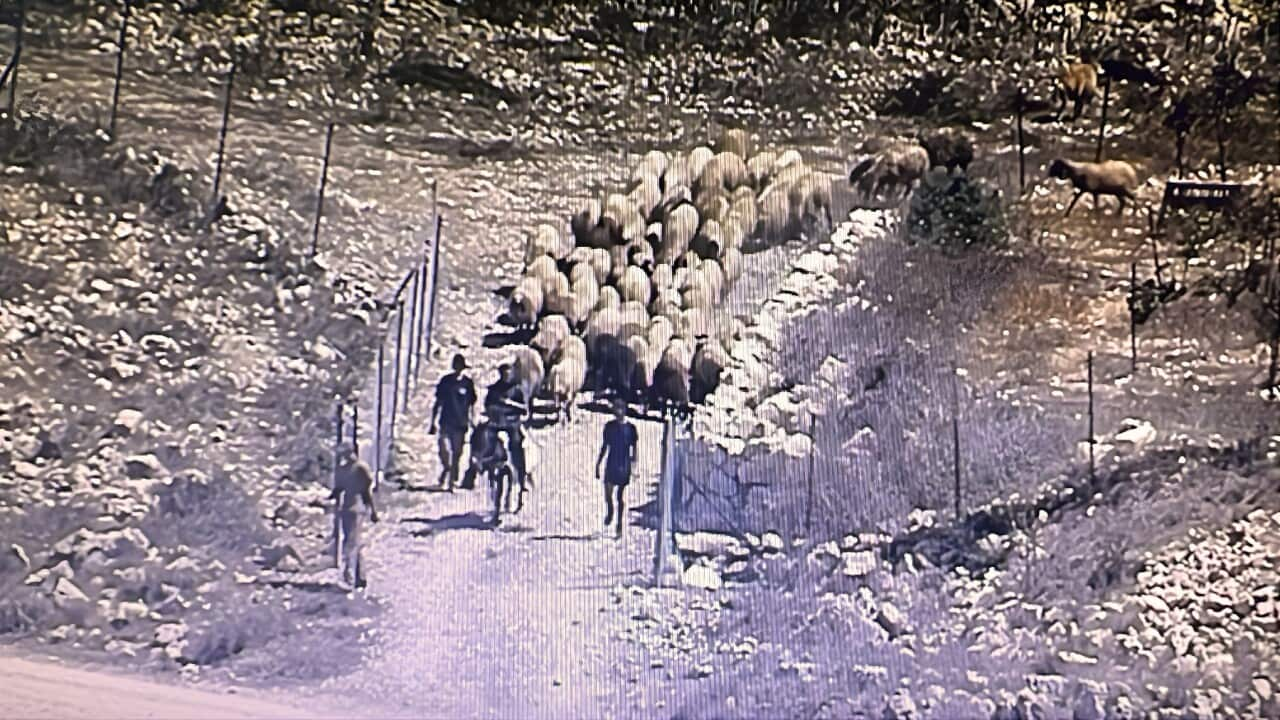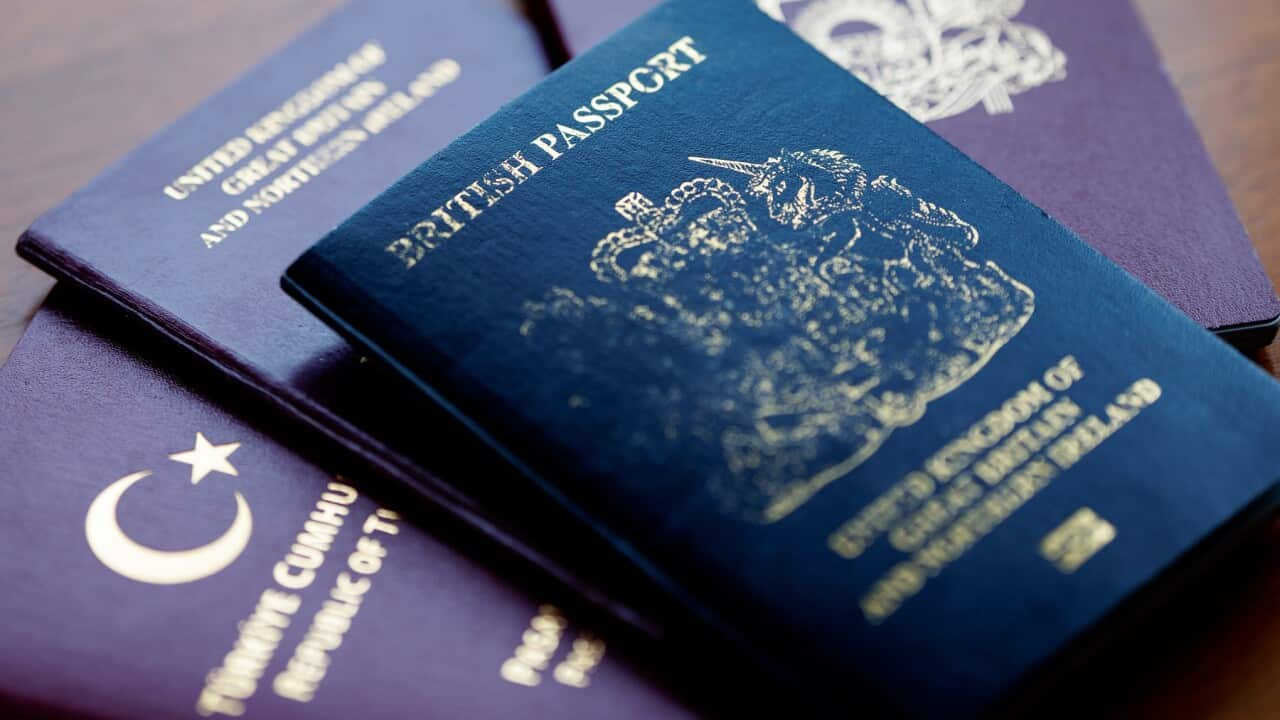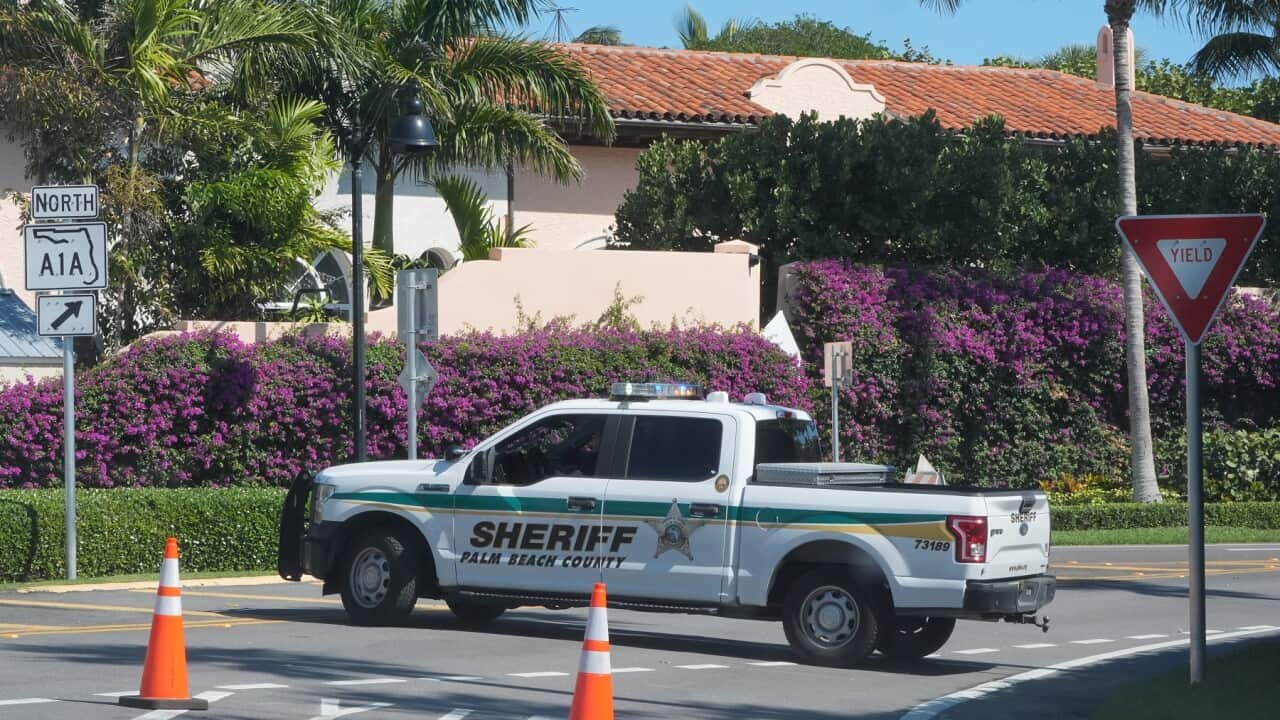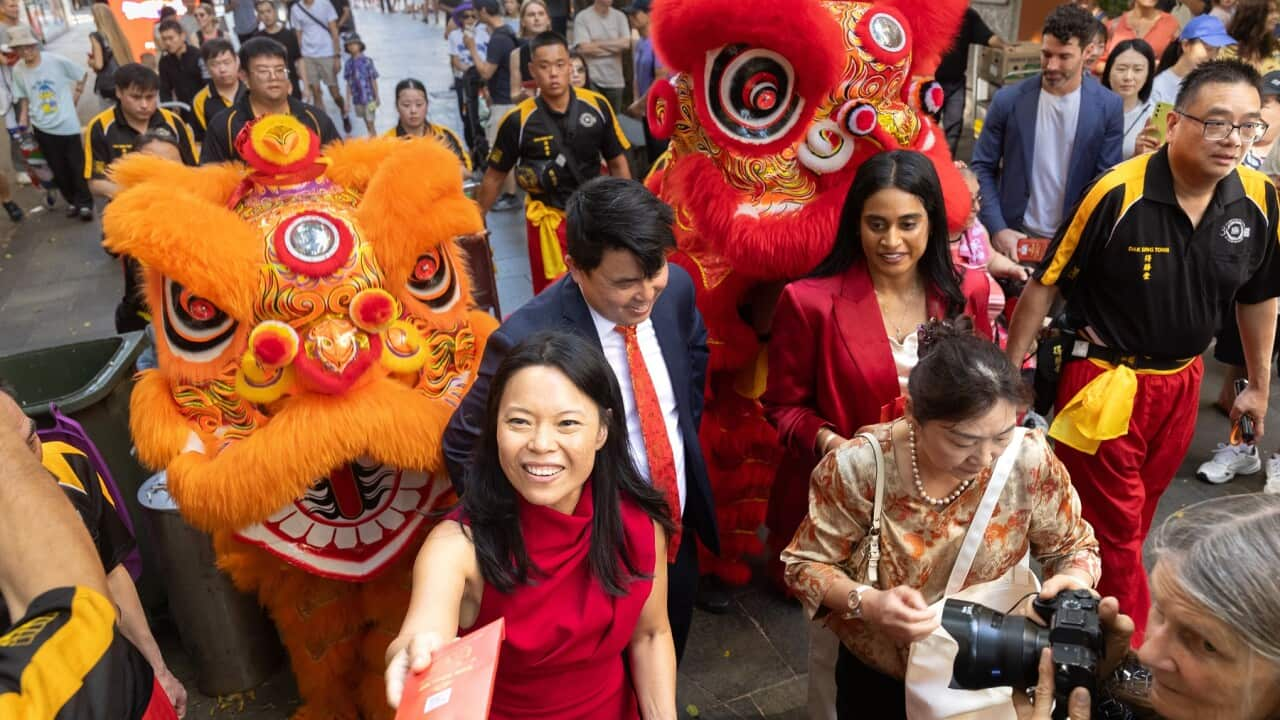This story was produced in collaboration with SBS Arabic.
Listen to Australian and world news, and follow trending topics with SBS News Podcasts.
TRANSCRIPT
"In the end, this is our land, and we must take care of it so that it takes care of us — and we are a stubborn people."
For winemaker Sari Kassis, the anxious uncertainty of tomorrow has become a constant part of life.
Like others in the West Bank, his family's property has become the target of violent Israeli settler attacks.
Moving from Sydney to his family-run vineyard near Birzeit, north of Ramallah, Sari Kassis returned to the land where his family has been growing grapes since the 1990s and olives for much longer.
Speaking to SBS Arabic, Mr Kassis says that a few months ago, Israeli forces in the West Bank announced the creation of a new military security zone in his area.
"We’ve been suffering for months. A few months ago, we received a letter from the Israeli army informing us that the area had been declared a security zone — about seven thousand square meters — which includes our vineyards, agricultural areas, and at the centre of this zone is a new settlement outpost that follows the ideology of Meir Kahane and is supported by the Israeli Minister of Interior. What’s more dangerous is that it also has the backing of the Israeli Minister of Finance."
Life as a Palestinian in the West Bank has become even more precarious in recent years.
For farmers around the world, forecasting things like the weather can be crucial to a successful yield.
But for farmers in the West Bank, who live under strict and constantly evolving security measures, planning ahead is not so simple.
"Part of the security zone overlaps with our farms. We are required to obtain a permit from the Israeli army to access these areas, under certain conditions. This law depends entirely on the army’s mood. Some days they see us entering our own land and say nothing. Other days, at any moment, they can block access. You go down not knowing what to expect, unsure of the future. For example, we built a water pool on our land — the army waited until we invested everything, finished it, and then they came and destroyed it. So you think twice, three times, ten times before planting anything there."
In the centre of the security zone, members of a violent settler group known as 'Hilltop Youth' set up an illegal outpost.
An extremist religious Zionist group, Hilltop Youth follow the teachings of Rabbi Meir Kahane, who taught that all non-Jewish people should be expelled from Israel.
Sanctioned by Australia, the UK and the European Union, Hilltop Youth are known for their violent extremism and attacks.
"The outpost consists of about seven or eight young Israeli settlers — I think the oldest is in his early twenties. Their main goal is to change the balance between Palestinians and Israelis in the West Bank by forcing Palestinians to flee their farms and lands by any means."
Meir Kahane advocated for a strict separation of Jewish and non-Jewish people in Israel and proposed a bill saying that any non-Jew in Israel will be forced into slavery or forcibly deported.
According to the Jerusalem Post*, when Kahane's party was elected in 1984, most of Israeli society was embarrassed by his election and 118 members of the Knesset boycotted him, leaving anytime he spoke.
Despite being assassinated in New York in 1990, his influence on radical groups has grown in recent decades.
The Jewish Power party, now a major part of Israel's governing coalition, has been described as a "legal rendition" of Kahane's party.
Sarit Michaeli is the International Director at Israeli human rights group B'Tselem.
Speaking to SBS, she says settler attacks are not a fringe phenomenon.
"It's important that people acknowledge that settler violence isn't just some crazy Hilltop Youth running around setting fire to things. We're talking about a group of people who are acting essentially as the informal arm of the Israeli government. They're supported, they're funded, they get political support and backing from the Israeli government, and they're operating on the ground with impunity."
Often masked, armed and travelling in groups, these gangs of men and boys carry out attacks with almost total impunity.
Data from Israeli rights group Yesh Din shows that of the 1,701 police investigations into settler attacks in the West Bank between 2005 and 2024, over 93 per cent of cases ended without indictment.
Sarit Michaeli says there is an unspoken understanding that Israeli forces are not expected to intervene in settler violence.
"Since the establishment of this government, the way Israel has moved to even in deepen its annexation and also signaled both the Army and the police that law enforcement is not warranted, and on the contrary that they shouldn't protect Palestinians from Israeli settlers, that has really created just an absolute free-for-all, when it comes to total impunity of Israeli perpetrators for virtually any, any type of violence against Palestinians. This includes killing as well as daylight robbery, land theft, terrorizing communities, brutalising them."
Sari Kassis says if authorities do show up, their response is often slow and apathetic.
"All we can really do is film them — you take out your phone and just keep recording. They are armed, and they wait for any moment, any excuse to attack you. So you can’t get close — otherwise you give them a pretext. And this specific group has shot at people before, aside from burning cars, homes, and more. We always record and call the Israeli army, informing them that these people have entered our land and they should come remove them. If they do come, it's usually hours later — one patrol says a word or two to the settlers and they leave. But of course the damage is done."
The United Nations says the total number of Palestinians killed by Israeli security forces and settlers since October 2023 in the West Bank is now over 1,000.
According to the UN Office for the Coordination of Humanitarian Affairs, October 2025 saw over 260 settler attacks, an average of eight per day.
In a recent briefing, UN Deputy Special Coordinator for the Middle East Peace Process Ramiz Alakbarov said it was the highest number since monitoring began.
"The settler violence has reached emergency levels. In October, during the olive harvest season, the UN recorded the highest number of settler attacks on Palestinians since the UN monitoring began, an average of eight per day. The olive harvest is an economic and cultural lifeline. These attacks have injured farmers, destroyed olive trees and decimated livelihoods."
After settlers attacked Israeli security forces for dismantling an illegal outpost, Israeli Prime Minister Benjamin Netanyahu offered a rebuke of settler attacks.
Open criticism of settlers from top Israeli officials is extremely rare.
Following international pressure to address violence in the West Bank, Israeli government spokesperson Shosh Bedrosian says Israel doesn't tolerate the attacks.
“Any incidents of lawlessness are dealt with to the full extent of the law. The IDF operates under strict ethical guidelines and international law in Judea and Samaria."
Sarit Michaeli says that such condemnations from high level Israeli officials are not followed by meaningful change.
"When Israeli spokespeople say that this is either a small and unimportant phenomenon or that Israel is doing something to tackle it, they are, they're basically lying, because what Israel is doing is funding, is helping, is enhancing the ability of these settlers, who are organised, who are well established, to do these things, to take these violent actions that we see on a daily basis throughout the West Bank, to simply change irreversibly what we have, you know, the control of the land in reality."
In a landmark opinion last July, the International Court of Justice declared Israel’s occupation of Palestinian territory illegal and called for the evacuation of all settlements in the West Bank and East Jerusalem.
In September of 2025, Australia formally recognised Palestinian territories as an independent and sovereign State of Palestine.
With the Israeli Knesset now passing a draft bill that, if approved, will allow Israelis to purchase land in the occupied West Bank, there are fears of further annexation of Palestinian territory.
Reflecting on his family's deep and historic connections to the land, Sari Kassis says leaving is not an option.
"How could I leave this land — and leave it to those people? Impossible. My principles don’t allow me to abandon my country and my land, to stop resisting, to stop standing against a colonial system whose sole purpose is to erase me and erase my existence. It’s impossible. Australia too, for me, is also colonised and taken from its original people — I would just be repeating the same story. Our presence here as Palestinians — and Palestinians everywhere — is a form of resistance for humanity. For me there is no other option. My presence and continued existence here is essential."













